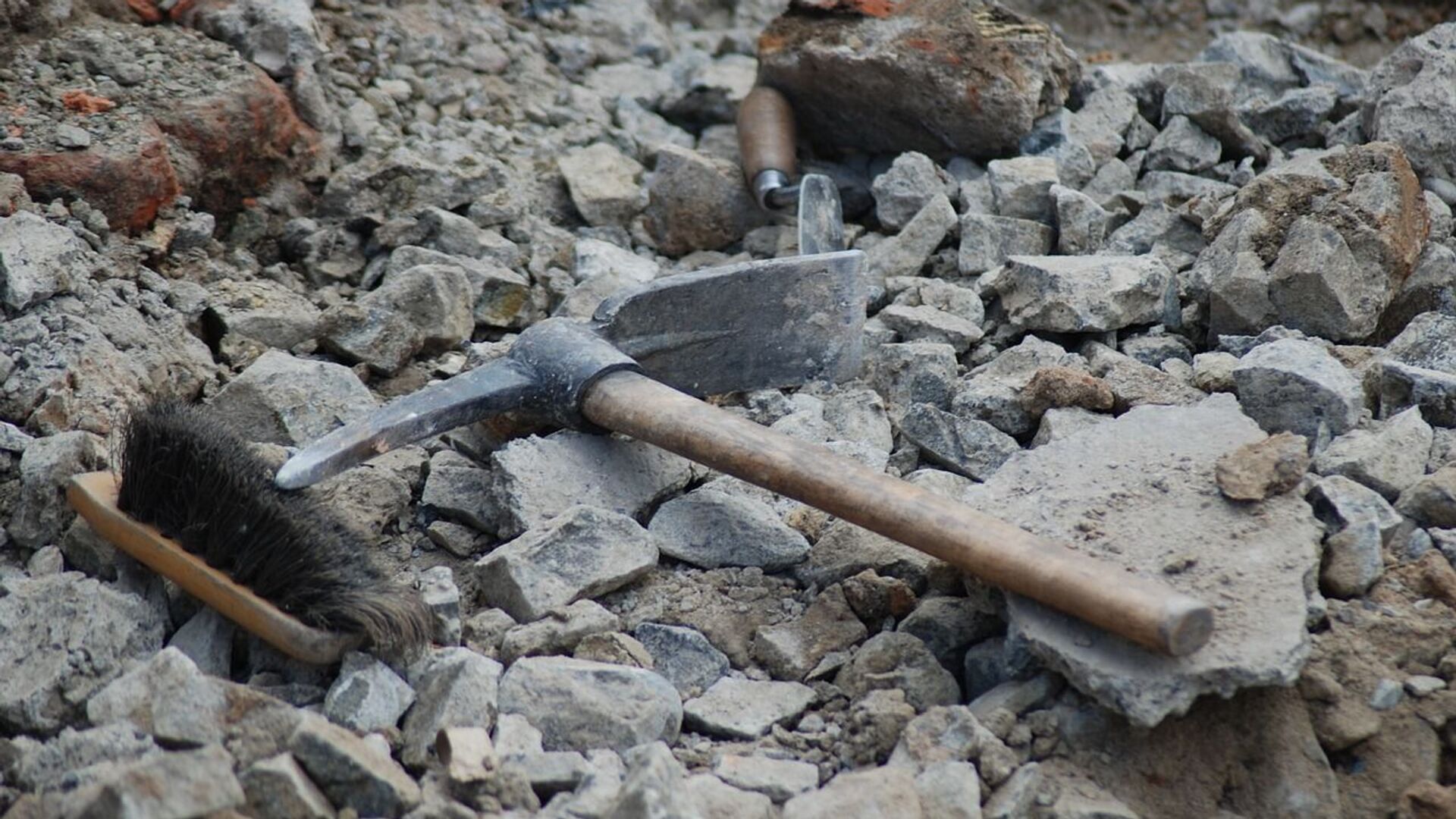https://sputnikglobe.com/20240805/rare-2400-year-old-pot-of-gold-coins-unearthed-in-turkiye-1119639096.html
Rare 2,400-Year-Old Pot of Gold Coins Unearthed in Turkiye
Rare 2,400-Year-Old Pot of Gold Coins Unearthed in Turkiye
Sputnik International
A team of archaeologists had been working to excavate the courtyard of a home which dates to the third century BC - that’s when they discovered a much older dwelling which already existed there.
2024-08-05T04:53+0000
2024-08-05T04:53+0000
2024-08-05T04:53+0000
beyond politics
turkiye
university of michigan
anadolu
archaeology
artifact
artifacts
artifacts
ancient treasure
https://cdn1.img.sputnikglobe.com/img/07e4/07/10/1079904806_0:110:1281:830_1920x0_80_0_0_0ca9a68ea14540d5b4fc17a3cb682cbb.jpg
A 2,400-year-old "savings account" buried by a mercenary soldier in the late fifth century BC has been discovered in the seaside city of Notion in what is now modern-day Turkiye, although the coins were likely minted in Sardis, about 60 miles (97 kilometers) northeast of Notion.A team of archaeologists had been working to excavate the courtyard of a home which dates to the third century BC – that’s when they discovered a much older dwelling which already existed there, The New York Times reported.The coin depicts a Persian king kneeling with a bow and spear and dressed in a long tunic. These darics (coins) were used to pay soldiers of fortune. Therefore, archeologists believe this treasure chest once belonged to a mercenary who had buried his gold for safekeeping.“No one ever buries a hoard of coins, especially precious metal coins, without intending to retrieve it,” he added. “So only the gravest misfortune can explain the preservation of such a treasure.”Andrew Meadows, an archaeologist at the University of Oxford who was not involved in the study, said the find is of the “highest importance” considering the fact that no other such discovery has been made in Asia Minor or Anatolia (Anadolu). Anatolia is where the Western world’s first state-issued coin was created, in the kingdom of Lydia around 610 BC by Lydian King Alyattes.In 287 BC following the Athenians' defeat by the Spartans, Notion and other cities of Ionia were incorporated into the Persian Empire. Following Alexander the Great’s conquest in 334 BC the daric was starting to be phased out of production. Instead, Alexander the Great and his successors had the coins melted down in order to bear their images.But the burial and loss of the treasure could have happened as early as between 430 and 427 BC, when a group of Persian sympathizers and Grecians occupied Notion. It was during that time that the Athenian general Paches killed pro-Persian mercenaries, which ushered in Athenian control.
https://sputnikglobe.com/20240804/wildfires-rage-across-western-north-america-with-89-active-fires-in-us--video--1119630044.html
turkiye
Sputnik International
feedback@sputniknews.com
+74956456601
MIA „Rossiya Segodnya“
2024
News
en_EN
Sputnik International
feedback@sputniknews.com
+74956456601
MIA „Rossiya Segodnya“
Sputnik International
feedback@sputniknews.com
+74956456601
MIA „Rossiya Segodnya“
turkiye, archaeology, rare coin, daric, ancient artifact, history, cool news, discovery
turkiye, archaeology, rare coin, daric, ancient artifact, history, cool news, discovery
Rare 2,400-Year-Old Pot of Gold Coins Unearthed in Turkiye
This pot of gold wasn’t found by following a rainbow.
A 2,400-year-old "savings account" buried by a mercenary soldier in the late fifth century BC has been discovered in the seaside city of Notion in what is now modern-day Turkiye, although the coins were likely minted in
Sardis, about 60 miles (97 kilometers) northeast of Notion.
A team of archaeologists had been working to excavate the courtyard of a home which dates to the third century BC – that’s when they discovered a much older dwelling which already existed there,
The New York Times reported.
“The coins were buried in a corner of the older building,” said Christopher Ratté, an archaeologist at the University of Michigan. “We weren’t actually looking for a pot of gold.”
The coin depicts a Persian king kneeling with a bow and spear and dressed in a long tunic. These darics (coins) were used to pay soldiers of fortune. Therefore, archeologists believe this treasure chest once belonged to a mercenary who had buried his gold for safekeeping.
“According to the Greek historian Xenophon, a single daric was equivalent to a soldier’s pay for one month,” added Ratté, who is also the director of the Notion Archaeological Survey.
“No one ever buries a hoard of coins, especially precious metal coins, without intending to retrieve it,” he added. “So only the gravest misfortune can explain the preservation of such a treasure.”
Andrew Meadows, an archaeologist at the University of Oxford who was not involved in the study, said the find is of the “highest importance” considering the fact that no other such discovery has been made in Asia Minor or Anatolia (Anadolu).
Anatolia is where the Western world’s first state-issued coin was created, in the kingdom of Lydia around 610 BC by Lydian King Alyattes.
“The archaeological context for the hoard will help us fine-tune the chronology of Achaemenid gold coinage,” said Meadows.
In 287 BC following the Athenians' defeat by the Spartans, Notion and other cities of Ionia were incorporated into the Persian Empire. Following Alexander the Great’s conquest in 334 BC the daric was starting to be phased out of production. Instead, Alexander the Great and his successors had the coins melted down in order to bear their images.
But the burial and loss of the treasure could have happened as early as between 430 and 427 BC, when a group of Persian sympathizers and Grecians occupied Notion. It was during that time that the Athenian general Paches killed pro-Persian mercenaries, which ushered in Athenian control.



